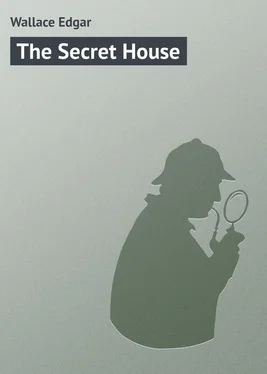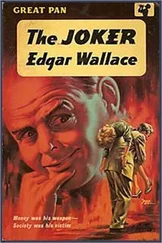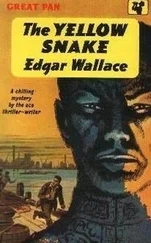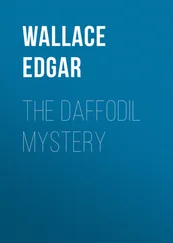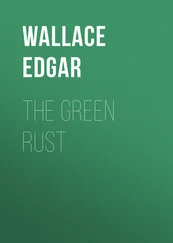Edgar Wallace - The Secret House
Здесь есть возможность читать онлайн «Edgar Wallace - The Secret House» — ознакомительный отрывок электронной книги совершенно бесплатно, а после прочтения отрывка купить полную версию. В некоторых случаях можно слушать аудио, скачать через торрент в формате fb2 и присутствует краткое содержание. Жанр: Классический детектив, foreign_detective, foreign_prose, foreign_language, на английском языке. Описание произведения, (предисловие) а так же отзывы посетителей доступны на портале библиотеки ЛибКат.
- Название:The Secret House
- Автор:
- Жанр:
- Год:неизвестен
- ISBN:нет данных
- Рейтинг книги:5 / 5. Голосов: 1
-
Избранное:Добавить в избранное
- Отзывы:
-
Ваша оценка:
- 100
- 1
- 2
- 3
- 4
- 5
The Secret House: краткое содержание, описание и аннотация
Предлагаем к чтению аннотацию, описание, краткое содержание или предисловие (зависит от того, что написал сам автор книги «The Secret House»). Если вы не нашли необходимую информацию о книге — напишите в комментариях, мы постараемся отыскать её.
The Secret House — читать онлайн ознакомительный отрывок
Ниже представлен текст книги, разбитый по страницам. Система сохранения места последней прочитанной страницы, позволяет с удобством читать онлайн бесплатно книгу «The Secret House», без необходимости каждый раз заново искать на чём Вы остановились. Поставьте закладку, и сможете в любой момент перейти на страницу, на которой закончили чтение.
Интервал:
Закладка:
Edgar Wallace
The Secret House
CHAPTER I
A man stood irresolutely before the imposing portals of Cainbury House, a large office building let out to numerous small tenants, and harbouring, as the indicator on the tiled wall of the vestibule testified, some thirty different professions. The man was evidently poor, for his clothes were shabby and his boots were down at heel. He was as evidently a foreigner. His clean-shaven eagle face was sallow, his eyes were dark, his eyebrows black and straight.
He passed up the few steps into the hall and stood thoughtfully before the indicator. Presently he found what he wanted. At the very top of the list and amongst the crowded denizens of the fifth floor was a slip inscribed:
He took from his waistcoat pocket a newspaper cutting and compared the two then stepped briskly, almost jauntily, into the hall, as though all his doubts and uncertainties had vanished, and waited for the elevator. His coat was buttoned tightly, his collar was frayed, his shirt had seen the greater part of a week's service, the Derby hat on his head had undergone extensive renovations, and a close observer would have noticed that his gloves were odd ones.
He walked into the lift and said, "Fifth floor," with a slight foreign accent.
He was whirled up, the lift doors clanged open and the grimy finger of the elevator boy indicated the office. Again the man hesitated, examining the door carefully. The upper half was of toughened glass and bore the simple inscription:
Obediently the stranger knocked and the door opened through an invisible agent, much to the man's surprise, though there was nothing more magical about the phenomenon than there is about any electrically controlled office door.
He found himself in a room sparsely furnished with a table, a chair and a few copies of papers. An old school map of England hung on one wall and a Landseer engraving on the other. At the farthermost end of the room was another door, and to this he gravitated and again, after a moment's hesitation, he knocked.
"Come in," said a voice.
He entered cautiously.
The room was larger and was comfortably furnished. There were shaded electric lamps on either side of the big carved oak writing-table. One of the walls was covered with books, and the litter of proofs upon the table suggested that this was the sanctorum.
But the most remarkable feature of the room was the man who sat at the desk. He was a man solidly built and, by his voice, of middle age. His face the new-comer could not see and for excellent reason. It was hidden behind a veil of fine silk net which had been adjusted over the head like a loose bag and tightened under the chin.
The man at the table chuckled when he saw the other's surprise.
"Sit down," he said – he spoke in French – "and don't, I beg of you, be alarmed."
"Monsieur," said the new-comer easily, "be assured that I am not alarmed. In this world nothing has ever alarmed me except my own distressing poverty and the prospect of dying poor."
The veiled figure said nothing for a while.
"You have come in answer to my advertisement," he said after a long pause.
The other bowed.
"You require an assistant, Monsieur," said the new-comer, "discreet, with a knowledge of foreign languages and poor. I fulfill all those requirements," he went on calmly; "had you also added, of an adventurous disposition, with few if any scruples, it would have been equally descriptive."
The stranger felt that the man at the desk was looking at him, though he could not see his eyes. It must have been a long and careful scrutiny, for presently the advertiser said gruffly:
"I think you'll do."
"Exactly," said the new-comer with cool assurance; "and now it is for you, dear Monsieur, to satisfy me that you also will do. You will have observed that there are two parties to every bargain. First of all, my duties?"
The man in the chair leant back and thrust his hands into his pockets.
"I am the editor of a little paper which circulates exclusively amongst the servants of the upper classes," he said. "I receive from time to time interesting communications concerning the aristocracy and gentry of this country, written by hysterical French maids and revengeful Italian valets. I am not a good linguist, and I feel that there is much in these epistles which I miss and which I should not miss."
The new-comer nodded.
"I therefore want somebody of discretion who will deal with my foreign correspondence, make a fair copy in English and summarize the complaints which these good people make. You quite understand," he said with a shrug of his shoulders, "that mankind is not perfect, less perfect is womankind, and least perfect is that section of mankind which employs servants. They usually have stories to tell not greatly to their masters' credit, not nice stories, you understand, my dear friend. By the way, what is your name?"
The stranger hesitated.
"Poltavo," he said after a pause.
"Italian or Pole?" asked the other.
"Pole," replied Poltavo readily.
"Well, as I was saying," the editor went on, "we on this paper are very anxious to secure news of society doings. If they are printable, we print them; if they are not printable" – he paused – "we do not print them. But," he raised a warning forefinger, "the fact that particulars of disgraceful happenings are not fit for publication must not induce you to cast such stories into the wastepaper basket. We keep a record of such matters for our own private amusement." He said this latter airily, but Poltavo was not deceived.
Again there was a long silence whilst the man at the table ruminated.
"Where do you live?" he asked.
"On the fourth floor of a small house in Bloomsbury," replied Poltavo.
The veiled figure nodded.
"When did you come to this country?"
"Six months ago."
"Why?"
Poltavo shrugged his shoulders.
"Why?" insisted the man at the table.
"A slight matter of disagreement between myself and the admirable chief of police of Sans Sebastian," he said as airily as the other.
Again the figure nodded.
"If you had told me anything else, I should not have engaged you," he said.
"Why?" asked Poltavo in surprise.
"Because you are speaking the truth," said the other coolly. "Your matter of disagreement with the police in Sans Sebastian was over the missing of some money in the hotel where you were staying. The room happened to be next to yours and communicating, if one had the ingenuity to pick the lock of the door. Also your inability to pay the hotel bill hastened your departure."
"What an editor!" said the other admiringly, but without showing any signs of perturbation or embarrassment.
"It is my business to know something about everybody," said the editor. "By the way, you may call me Mr. Brown, and if at times I may seem absent-minded when I am so addressed you must excuse me, because it is not my name. Yes, you are the kind of man I want."
"It is remarkable that you should have found me," said Poltavo. "The cutting" – he indicated the newspaper clip – "was sent to me by an unknown friend."
"I was the unknown friend," said "Mr. Brown"; "do you understand the position?"
Poltavo nodded.
"I understand everything," he said, "except the last and most important of all matters; namely, the question of my salary."
The man named a sum – a generous sum to Poltavo, and Mr. Brown, eyeing him keenly, was glad to note that his new assistant was neither surprised nor impressed.
"You will see very little of me at this office," the editor went on. "If you work well, and I can trust you, I will double the salary I am giving you; if you fail me, you will be sorry for yourself."
Читать дальшеИнтервал:
Закладка:
Похожие книги на «The Secret House»
Представляем Вашему вниманию похожие книги на «The Secret House» списком для выбора. Мы отобрали схожую по названию и смыслу литературу в надежде предоставить читателям больше вариантов отыскать новые, интересные, ещё непрочитанные произведения.
Обсуждение, отзывы о книге «The Secret House» и просто собственные мнения читателей. Оставьте ваши комментарии, напишите, что Вы думаете о произведении, его смысле или главных героях. Укажите что конкретно понравилось, а что нет, и почему Вы так считаете.
